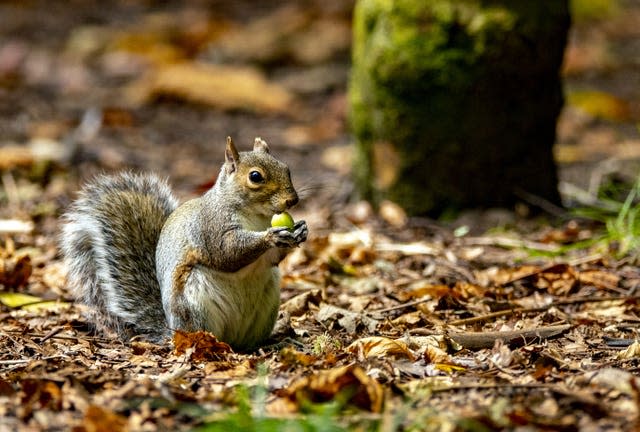Invasive species cost UK economy ‘more than £5bn over past 50 years’
Invasive species such as the grey squirrel, European rabbit and Japanese knotweed have cost the UK economy more than £5 billion over the past five decades, according to research.
Scientists from Queen’s University Belfast said their findings, published in the journal NeoBiota, represent one of the highest totals in Europe for managing these types of species.
Dr Ross Cuthbert, a research associate from the School of Biological Sciences at Queen’s University Belfast, said: “We have found the majority of costs were caused by direct damages, such as reductions in agricultural productivity and infrastructure repair costs, whereas very little was spent on the actual management of invasive species, and especially prevention of future invasions.

“Worryingly, we also found that invasion costs are increasing rapidly over time and are likely to continue rising in future as more invasive species arrive in the UK.
“These costs are also severely underestimated, as very few of the known invasive species in the UK have reported economic costs (less than 10%), indicating a lack of research effort and reporting of their detrimental impacts.”
Invasive species are plants or animals that have been introduced into a new environment by humans, where they cause ecological or economic damage.
For the study, the researchers analysed how costs in the UK were distributed across different invasive species and environments.
They also looked at different types of costs and how these changed over time.
The team found that over the past 40 to 50 years, invasive species have cost the UK economy over £5 billion, predominantly through agricultural or property impacts.
Japanese knotweed, for example, could cause structural damage to property that was expensive to rectify and could reduce the value of a house substantially, they said.
Meanwhile, invasive rabbits could destroy agricultural areas by overgrazing, while their burrowing could also impact the quality of pastures.
The researchers said they hoped their work would raise awareness of “the huge economic burden invasive species have on the UK economy for policymakers” and in turn “promote greater management spending to prevent their damage”.
Dr Cuthbert said: “Investing in better biosecurity to prevent invasive species from arriving in the first place could reduce future economic impacts and be much cheaper than future damages or long-term control.”

 Yahoo Finance
Yahoo Finance 